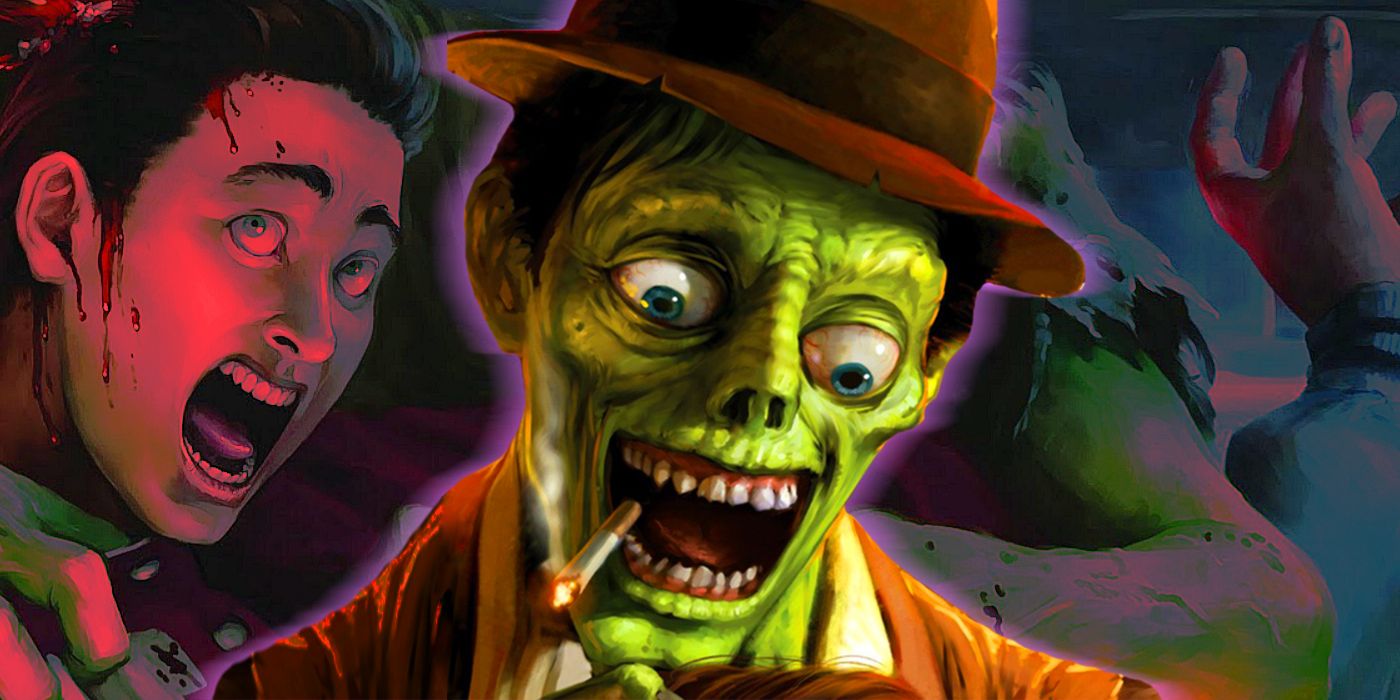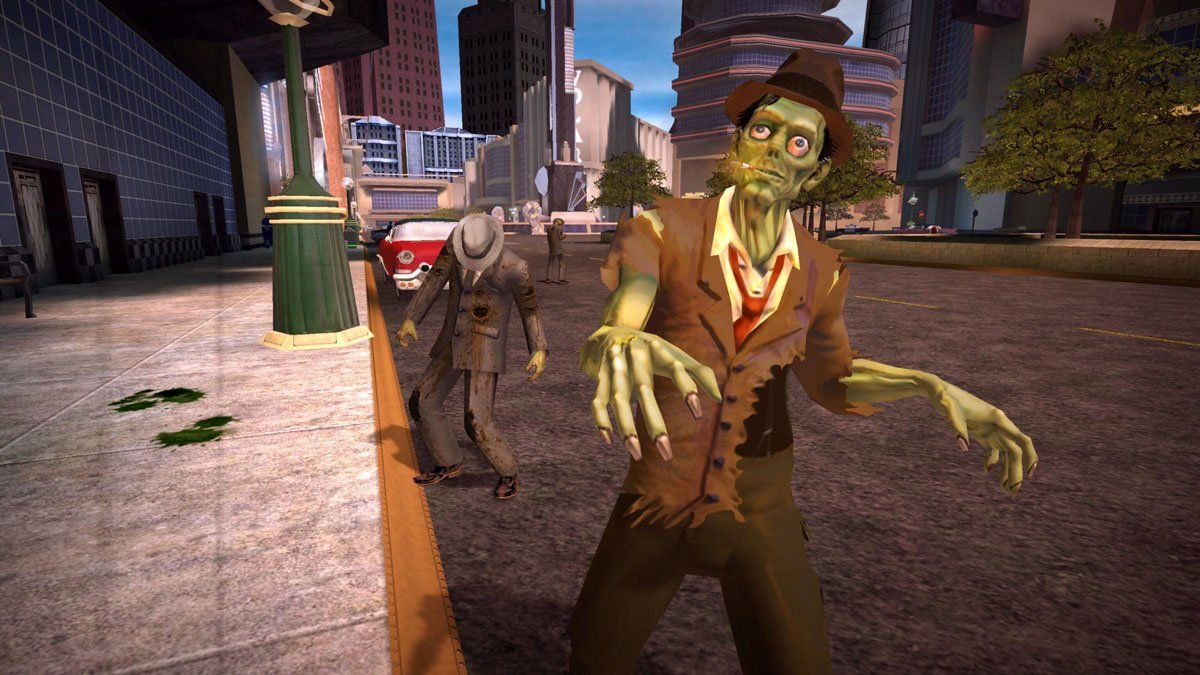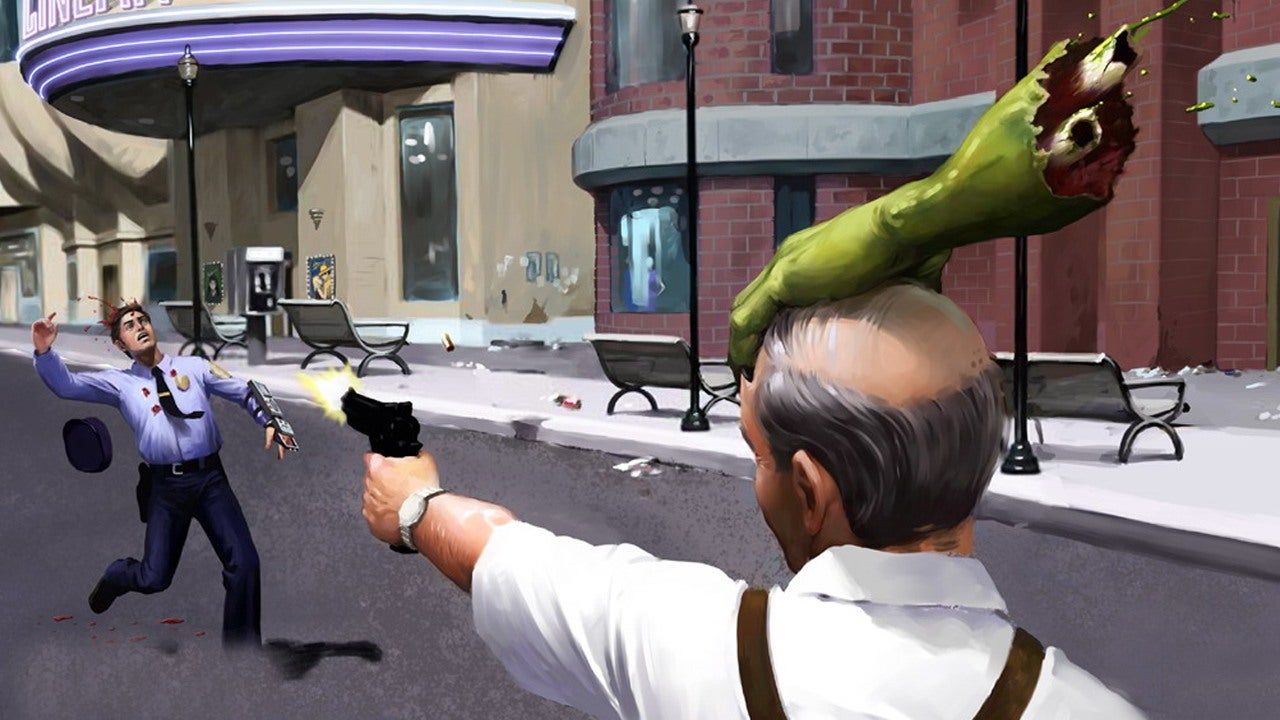Though the next generation of video game consoles has officially begun, many titles from 10-15 years or so ago are making a comeback. This is especially the case on the Playstation Store and the Nintendo eShop, which are host to several underlooked indie titles and remakes of games from console generations past. One such game is Stubbs the Zombie in Rebel Without a Pulse, a third-person action title originally released on the Xbox and Windows in 2005. Combining a retro aesthetic and sound with brain-eating action, the game is in many ways similar to Destroy All Humans!, swapping out aliens for zombies. The first game from developer Wideload Games, it was intentionally made to be the opposite of franchises such as Capcom's Resident Evil.
Stubbs has a rather storied history of being re-released on other consoles, as it was released on Steam in 2007 only to be taken off of the service later. It was also put on the Xbox Live Marketplace the year afterward but was later taken down due to technical issues. Thankfully, gamers can finally experience Stubb's quirky take on zombies again on semi-current consoles with its latest release for Switch, PS4 and Xbox One.
Brainless Fun
The game has players taking on the role of the eponymous Stubbs the Zombie, who was once a mere traveling salesman in the 1930s before being killed and subsequently resurrected as a zombie in a futuristic version of the 1950s. His exploits occur in the fictional Punchbowl, Pennsylvania, which is a hi-tech city of tomorrow built on top of Stubb's grave. Coming back as a zombie, Stubbs seeks revenge on the townspeople and the maniacal industrialist behind Punchbowl's creation. Along the way, he earns the scorn of the military and learns the truth about what happened to his long-lost love.
The basic gameplay has Stubbs shambling about town, attacking citizens and - what else - eating their brains. He'll usually have to slap them about a bit before he's able to feast upon their mind matter, especially in the case of armed and armored police officers. Along the way, he learns how to use several different zombie powers that aid him in his quest for vengeance against Punchbowl. These include possessing others with his severed hand, using other body parts as bowling balls and bombs, as well as unleashing toxic zombie flatulence.
His most vital talent, however, is converting others to his cause. Not only does eating the brains of the Punchbowl citizenry replenish Stubbs' health, but it also turns the murdered remains into undead zombies like Stubbs. They'll follow him around and attack enemies for him, inevitably creating more of their kind to fight alongside their progenitor. Stubbs can also commandeer the game's futuristic vehicles, which can lob projectiles at enemies or run them over at high speeds. Also helping Stubbs is a Guidebot, one of the city's more technologically advanced citizens who teaches him how to use different moves and generally be a menace to Punchbowl society.
Complementing the '50s setting is the music and general aesthetic of the era. Though they're sung by modern artists, the game's songs are also hits from the '30s, '40s and '50s, matching the bopping diner designs of the game's locales. There's also the title's irreverent humor, which parodies the eras in question, '50s science fiction movies and horror tropes. This has the effect of making the game less of a survival horror game and more of an action-adventure comedy.
Double the Stubbs
The game is based on the same engine as Halo, which is very noticeable in the game's co-op multiplayer mode. The second player can control another zombie named Grubbs via split-screen multiplayer in what feels somewhat like a third-persona variant of Bungie's popular title. The aforementioned vehicles feel incredibly similar and highlight how Stubbs takes gameplay elements from a different genre and makes them its own.
The game's biggest obstacles are the same as they were upon release 15 years ago, although they're certainly not deal-breakers. For as fun as the general gameplay is, there isn't too much variation throughout the game beyond the additional zombie powers that Stubbs gains. In other words, things are pretty much the same the whole way through, with not much diversity in the way of play mechanics outside of the occasional vehicle usage. Part of it also stems from how unvaried the combat mechanics are, with the growing number of zombie abilities only slightly lessening this. To be fair, the game itself isn't incredibly long-winded, though this is perhaps another issue. It's ultimately pretty short for those who really enjoy the game, though this does add replay value. Another complaint is that, being a zombie, Stubbs is rather doddering in his speed, which can be aggravating in the game's larger areas.
On this same note, the game can also be fairly easy, as Stubb's health regenerates from doing basic attacks. His accompanying zombie horde also helps him out, making enemies drop like flies and join their ranks in seconds. This can be curtailed a bit on the higher difficulties, but normal gameplay is a relative cakewalk. Beyond these problems, however, Stubbs the Zombie is a fun-filled reversal of survival horror games, combining addictive gameplay with hilarious twists on tropes and cliches. Gamers wanting a zombie game that lampoons the 1950s should check out the title.
Developed by Widleoad and published by Aspyr, Stubbs the Zombie in Rebel Without A Pulse releases March 16, 2021, for PlayStation 4, Xbox One and Nintendo Switch.
CBR was provided with a copy of this title by the publisher for review purposes.



